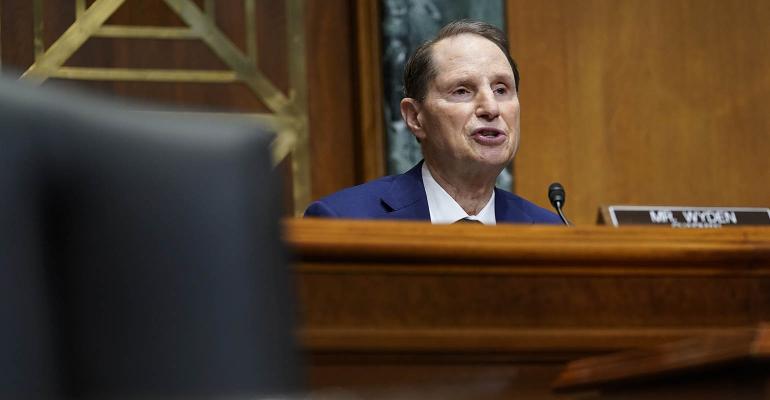Senate Finance Committee Chair Ron Wyden (D-Ore.) is continuing his investigation of the use of private placement life insurance (PPLI) as a tax evasion vehicle by the uberwealthy. Wyden initially launched the investigation Aug.15, requesting information from Lombard International, a top provider of PPLI, regarding its assets under management and investments made through PPLI arrangements. He’s also targeting the marketing aspect, expressing concern that these PPLI policies are being promoted as a tax shelter to prospective clients. This week, he expanded the investigation, also sending request of information letters to Prudential Financial, Zurich Insurance Group and the American Council of Life Insurers (ACLI).
The letters express concern that such PPLI arrangements “are being used, without a genuine insurance purpose, to invest in hedge funds and other investments while avoiding billions of dollars in federal taxes.”
Wyden also cites a recent investigation by the U.S. Department of Justice raising concerns about the involvement of PPLI policies in various offshore tax evasion schemes. One such case involved Switzerland’s largest insurance company, Swiss Life, which pleaded guilty to using PPLI policies and related investment accounts as “insurance wrappers” to help U.S. taxpayers conceal offshore assets and evade paying U.S. taxes.
Policy vs. Practice
Per Tax Notes, the arrangements that Wyden is referencing “leverage rules created to allow middle-income households to use life insurance as a vehicle to save and to accumulate an investment return on those savings.” Internal Revenue Code Section 7702 allows the cash value of the PPLI policy to grow free of income tax, so long as they remain in the policy, “and to provide that the full appreciated policy value goes to the beneficiaries untaxed upon the death of the insured.”
The PPLI arrangements targeted by Wyden technically abide by these rules, permitting investors to put millions of dollars into life insurance “separate accounts” attached to a minimal death benefit on the insured. The appreciated account then passes to the designated beneficiaries tax free on the insured's death (which Wyden claims functions the same as the “stepped up basis” loophole).
Wyden’s premise for the investigation seems to be that these sort of policies “are only available to the wealthiest 1% of Americans and offer a myriad of tax advantages not available to most working Americans.” This motivation leads one to question: whether this investigation is wrapped in public policy. Are there actual widespread abuses of PPLI, or is Wyden more concerned with the fact that such investment opportunities (and tax advantages) are available only to the ultra-high-net-worth?
“There have been abusive transactions using PPLI but I think Wyden is overreacting, and it’s mainly purchased for the flexibility in investments it offers which allows owners to maintain the death benefit for the family’s or other beneficiaries’ protection,” says Mary Ann Mancini, partner at Loeb & Loeb in Washington, D.C. That being said, however, “there are plenty protections already in the case law and in the Tax Code that address the concerns expressed by Wyden; it doesn’t need to be even more regulated,” opines Mancini.





